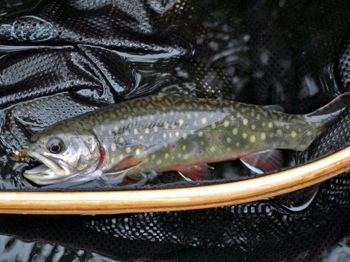There’s something comforting about watching birds come to a bird feeder on a cold, snowy winter’s day. Several house finches have taken up permanent residence on one side of the bird feeder, while an equal number of slate-colored juncos are pecking the ground beneath it. A red-bellied woodpecker grasps the edge of feeder, opposite the finches. His body hangs off the edge with only his head above it to grab a sunflower seed. Black-capped chickadees (they’re my favorite) flit back and forth, taking seeds and eating them in their perches amongst nearby bushes and trees. An occasional white-breasted nuthatch or downy woodpecker ventures onto the feeder, opposite the finches who continue to eat seeds and rebuff a female cardinal that then waits in a nearby bush for her turn. The juncos patiently keep looking for seeds in the snow below. Medium-sized fluffy snowflakes gently float down from the sky amidst a backdrop of grey branches and the grayish green leaves of cedar trees. All is at peace. Suddenly, a grey squirrel runs past, no doubt being chased by something. Two noisy, raucous blue jays swoop in from behind the squirrel and swerve towards the feeder; birds feeding there scatter in all directions. The jays sound out their loud, wintry dominance before starting to consume seeds. The peace of the snowy winter’s day has been temporarily broken by the blue jays’ noisy, aggressive presence. Or has it? Blue jays used to really bother me. When I was a kid and out grouse hunting with my father, blue jays’ noisy warnings seemed to worsen our hunting. I guess I really don’t know if grouse listened to the warnings and said something like, “Hmm, a man with a brown coat, carrying a Remington 12 gauge and a kid with a pea shooter just entered the woods after sneaking across old man McCarthy’s pasture. That kid could be dangerous. We had better clear out, Mable.” I can’t say for certain what goes through the brain of a ruffed grouse, or how they process a blue jay’s warning call, but the grouse seemed to listen because we often saw fewer of them after the blue jays had sounded their alarm. So, even though the kid with the pea shooter didn’t appreciate the fact that the blue jays appeared to be warning the grouse, the adult he grew into did and had to begrudgingly admit that the blue jays’ warnings were beneficial to the grouse he was seeking.
(A sharpie—sharp-shinned hawk—just shot through our yard at about head level and landed in the lower branches of a nearby tree. In less than two seconds every other living thing in our yard, including the squirrels, vanished. Talk about breaking the peace of a snowy winter’s day!)
What are the warning sounds that we hear in our lives and how should we respond to them? The threat of global warming is one that has certainly been sounded, but it’s a challenging one for me to get my arms around. If you listen to the people in one camp, it’s all doom and gloom. We’re about to experience the greatest mass extinction of species the world has ever seen, which is ultimately going to result in our own extinction. It might already be too late to change the effects of global warming, and only the most drastic of measures, applied across the globe, can prevent a disaster of enormous proportions. If you listen to the people in the other camp, global warming has been slowly taking place for centuries and is part of the normal warming and cooling cycle of our planet. Yes, we should do whatever we can to minimize our impact on global warming, but the scientific community is overreacting and life as we know it is certainly not going to end. As seems to be happening more often in our society, both sides have turned their positions into almost religious belief systems, thereby allowing each side to infallibly pronounce their beliefs as being the correct ones and, at the same time, infallibly pronounce contradictory beliefs and people who believe in them to be somehow bad and therefore worthy of condemnation. The end effect of this approach is that both sides end up not respecting each other, not listening to each other, in some cases hating each other, and ultimately doing nothing constructive about something that should be vitally important to all of us.
I’m a banker. I’m not a scientist, politician, farmer, or captain of industry. In fact, when it comes to global warming, I can freely admit that I’m not the brightest bulb on the tree. But I’m bright enough to know that an alarm has been sounded and that unless we all start respecting each other and truly listening to each other’s points of views, we’re not going to be able to respond as thoughtfully or as well to this alarm, as the ruffed grouse responded to the blue jays’ warnings when I was a kid.
Happy Fishing! —Scott Wagner


